Donald Trump takes triumphant tour of Washington, has cordial meeting with Barack Obama
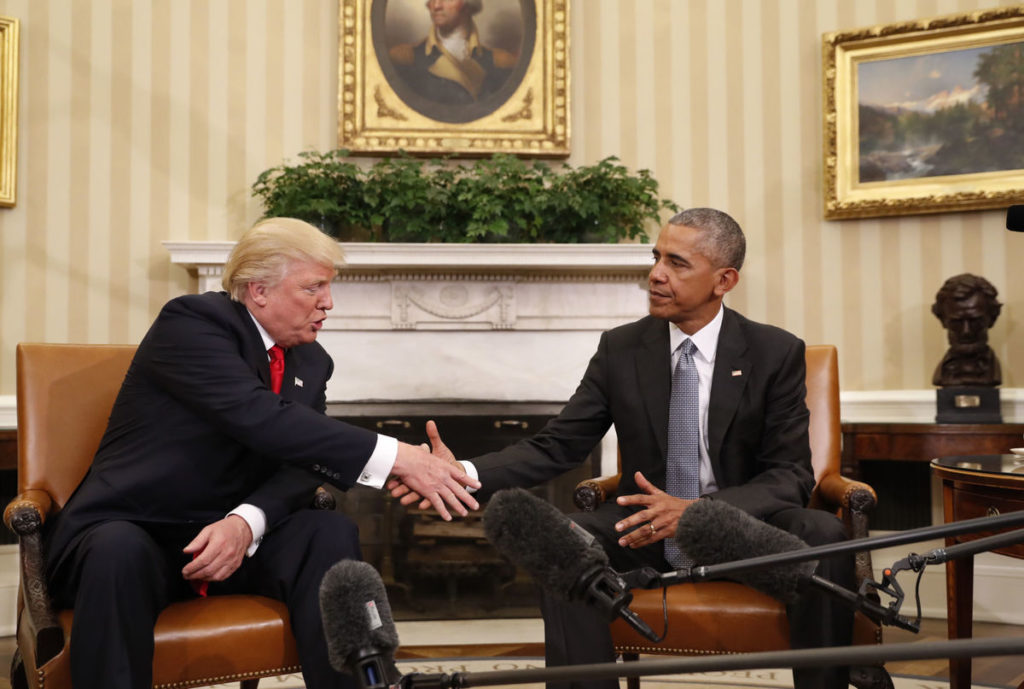
President-elect Donald Trump took a triumphant tour of the nation’s capital Thursday, holding a cordial White House meeting with President Barack Obama, sketching out priorities with Republican congressional leaders and taking in the majestic view from where he’ll be sworn into office. Trump’s meeting with Obama spanned 90 minutes, longer than originally scheduled. Obama said he was “encouraged” by Trump’s willingness to work with his team during the transition of power, and the Republican called the president a “very good man.” “I very much look forward to dealing with the president in the future, including his counsel,” Trump said from the Oval Office. He’ll begin occupying the office on Jan. 20. While Trump noted that he and Obama had never met before, their political histories will forever be linked. Trump spent years perpetrating the lie that Obama was born outside the United States. The president campaigned aggressively against Trump during the 2016 campaign, warning that his election would put the republic at risk. But at least publicly, the two men appeared to put aside their animosity. As the meeting concluded and journalists scrambled out of the Oval Office, Obama smiled at his successor and explained the unfolding scene. “We now are going to want to do everything we can to help you succeed because if you succeed the country succeeds,” Obama said. From the White House, Trump headed to Capitol Hill for meetings with House Speaker Paul Ryan of Wisconsin and Senate Majority Leader Mitch McConnell of Kentucky to discuss the GOP legislative agenda. Ryan, who holds the most powerful post in Congress, was a sometime critic of Trump and never campaigned with the nominee. Emerging from the meetings, Trump sketched out priorities for his presidency. “We’re going to move very strongly on immigration,” he said. “We will move very strongly on health care. And we’re looking at jobs. Big league jobs.” If Trump makes good on his campaign promises, he’ll wipe away much of what Obama has done during his eight years in office. The Republican president-elect, who will govern with Congress fully under GOP control, has vowed to repeal Obama’s signature health care law and dismantle the landmark nuclear accord with Iran. He’s also vowed to build a wall along the U.S.-Mexico border. First lady Michelle Obama met privately in the White House residence with Trump’s wife, Melania, while Vice President Joe Biden was seeing Vice President-elect Mike Pence later Thursday. Obama and Trump met alone, with no st Melania Trump aff present, White House press secretary Josh Earnest told reporters afterward. “The two men did not relitigate their differences in the Oval Office,” Earnest said. “We’re on to the next phase.” Trump traveled to Washington from New York on his private jet, breaking with protocol by not bringing journalists in his motorcade or on his plane to document his historic visit to the White House. Trump was harshly critical of the media during his campaign and for a time banned news organizations whose coverage he disliked from his events. As scores of journalists waited to be admitted to the Oval Office to see Obama and Trump together, they saw White House chief of staff Denis McDonough walking along the South Lawn driveway with Jared Kushner, Trump’s son-in-law. A handful of Trump aides trailed them. The show of civility at 1600 Pennsylvania Avenue contrasted with postelection scenes of protests across a politically divided country. Demonstrators from New England to the heartland and the West Coast vented against the election winner on Wednesday, chanting “Not my president,” burning a papier-mache Trump head, beating a Trump pinata and carrying signs that said “Impeach Trump.” More than 100 protesters held a sit-in outside Trump International Hotel just blocks from the White House. The mostly student protesters held signs saying “Love Trumps Hate,” a phrase Democrat Hillary Clinton often used during the campaign. Trump’s advisers, many of whom were stunned by his unexpected victory over Clinton, plunged into the work of setting up a White House and staffing government agencies. Officials at the Pentagon and State Department said they had not yet been contacted. State Department spokesman Mark Toner said the agency stood ready “to work with the incoming team once that team is designated and arrives here. But we don’t have any firm word as to when that will be.” Trump was expected to consider several loyal supporters for top jobs, including former New York Mayor Rudy Giuliani for attorney general or national security adviser and campaign finance chairman Steve Mnuchin for Treasury secretary. Former House Speaker Newt Gingrich and Tennessee Sen. Bob Corker were also expected to be under consideration for foreign policy posts. As president-elect, Trump is entitled to the same daily intelligence briefing as Obama — one that includes information on U.S. covert operations, information gleaned about world leaders and other data gathered by America’s 17 intelligence agencies. The White House said it would organize two exercises involving multiple agencies to help Trump’s team learn how to respond to major domestic incidents. Republished with permission of the Associated Press.
Donald Trump bucks protocol on press access
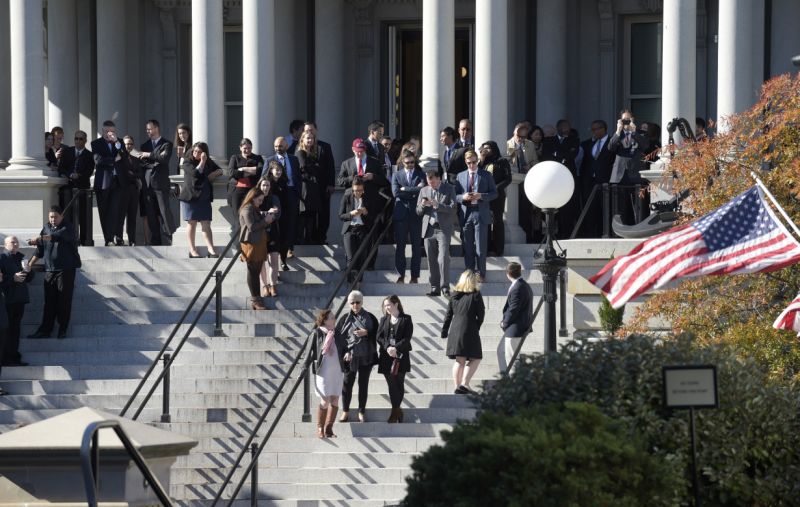
President-elect Donald Trump on Thursday refused to let a group of journalists travel with him to cover his historic first meeting with President Barack Obama, breaking a long-standing practice intended to ensure the public has a watchful eye on the nation’s leader. Trump flew from New York to Washington on his private jet without that “pool” of reporters, photographers and television cameras that have traveled with presidents and presidents-elect. Trump’s flouting of press access was one of his first public decisions since his election Tuesday. Trump’s meeting with Obama on Thursday will be recorded by the pool of White House reporters, photographers and TV cameras who cover the president. News organizations had for weeks tried to coordinate a pool of journalists who could begin to travel with Trump immediately after Election Day if he won election. But his campaign did not cooperate with those requests and his senior advisers refused Wednesday, the day after the election, to discuss any such press arrangements. Trump also broke from tradition as a candidate, refusing to allow a pool of campaign reporters, photographers or cameras to fly on his plane as he traveled to events. Every president in recent memory has traveled with a pool of journalists when they leave the White House grounds. A pool of reporters and photographers were in the motorcade when President John F. Kennedy was shot and killed in Dallas. The pool was just steps away from President Ronald Reagan when he was shot outside a hotel in the District of Columbia, and was stationed outside his hospital room as he recovered. The pool also travels on vacation and foreign trips and at times captures personal, historic moments of the presidency. News organizations take turns serving in the small group, paying their way and sharing the material collected in the pool with the larger press corps. The pool also covers official events at the White House when space doesn’t allow for the full press corps. The Associated Press is among those reaching out to Trump advisers about press access. Republished with permission of the Associated Press.
A breakdown of 14 amendments approved by Alabama voters
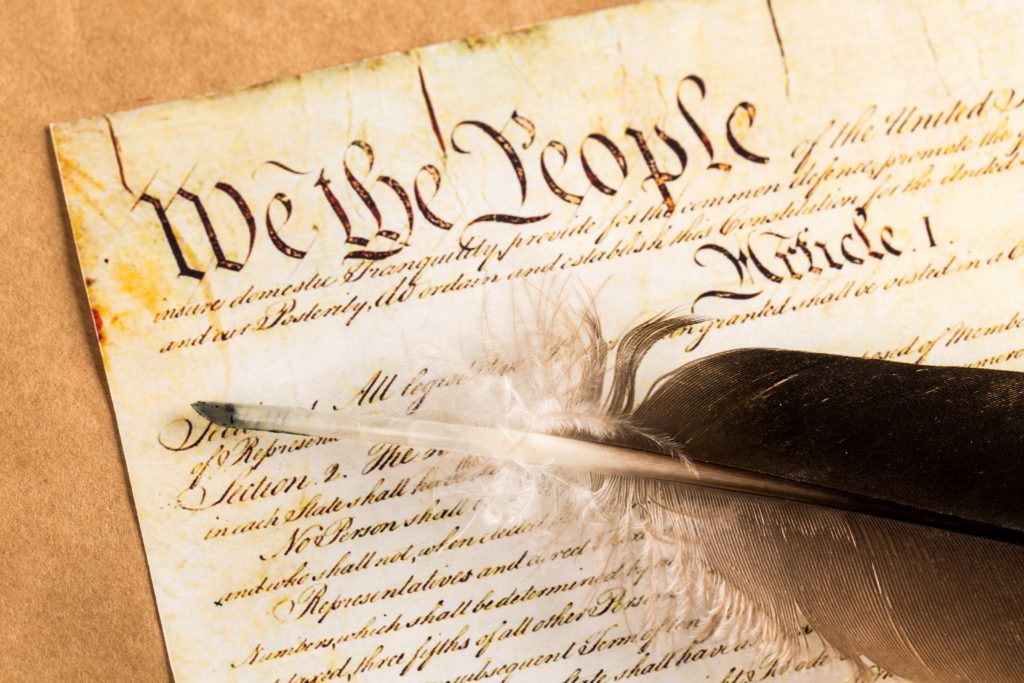
While the presidential race may have taken center stage on Tuesday, Alabama voters were presented with up to 14 additional ballot measures proposing changes to the Alabama Constitution, all of which were approved. Ratified in 1901, the Constitution frequently sees amendments come Election Day, and now has over 900. On Tuesday, some amendments were statewide while others were only seen in specific localities. Below is a summary of the 14 approved constitutional amendments: Amendment 1: Board of Trustees for Auburn University: Establishes procedures to ensure that no more than three of the members of the Auburn University Board of Trustees shall have terms that expire in the same calendar year, and adds two at large members to the board. Amendment 2: State Park funding Protects money generated by and for state parks from being moved to other government functions. Also allows the state to use private vendors to run hotels and amenities at more state parks. Amendment 3: Local rules governing amendments Allows the state Legislature to decide by resolution if proposed constitutional amendments affecting a specific local area shall be voted on statewide or only in the affected county. Amendment 4: Administrating county business Authorizes each county commission in the state to establish, subject to certain limitations, certain programs related to the administration of the affairs of the county including controlling weeds, junkyards, litter and rubbish, noise, pollution, sewage and animal control without having to ask permission from the state Legislature. Amendment 5: Separation of powers Repeals and rewrites sections of the Alabama Constitution concerning separation of powers to modernize language — such as the removal of the phrase “to wit” — without making any substantive changes. Amendment 6: Impeachment rules Establishes that a two-thirds majority vote of the Alabama Senate is required to remove an impeached public official from office. Previously, no margin was specified for removal. Amendment 7: Etowah County sheriff’s office Requires employees of the Etowah County Sheriff’s Office — except for the chief deputy, chief of detention, chief of administration, chief of investigation, director of communications, and food service manager — be under the authority of the Personnel Board of the Office of the Sheriff of Etowah County. Amendment 8: Labor and unions Adds Alabama’s right-to-work law in the Constitution, stipulating that employers cannot require employees to join unions or pay union dues. Amendment 9: Pickens County judge Makes an exception in the age limit for judges to allow someone up to age 75 to be elected or appointed to the office of Judge of Probate of Pickens County. Amendment 10: Calhoun County land Prevents cities and towns outside Calhoun County from being able to exercise police jurisdiction within Calhoun County. Amendment 11: Tax revenue Allows cities and counties to sell certain property they own for less than fair market value if it is located in areas specially designated as suitable for certain major manufacturing facilities in order to incentivize the establishment and improve various types of manufacturing facilities. Amendment 12: Baldwin County transportation Authorizes the state Legislature to create a toll road and bridge authority for a city or town in Baldwin County and they would oversee the construction and operation of toll roads and bridges within the city or town. Also authorizes the authority to issue revenue bonds to finance the projects. Amendment 13: Elected official age restrictions Repeals age restrictions for elected and appointed officials, with the exception of judges. The provision would also prevent lawmakers from approving new age caps without voters’ consent. Amendment 14: Budget, validating local laws Validates hundreds of local laws passed under a now disputed legislative procedure.
Alabama Democratic Party offers Donald Trump congratulations, support

Tuesday night billionaire businessman Donald Trump swept the electoral map in a historic upset that left Democrats across the country shocked and the nation divided. But the Alabama Democratic Party is putting forth an effort to close the divide, offering the newly elected Trump their congratulations and support. “We congratulate the winners and offer our support as they attempt to unify our divided country,” said Nancy Worley, Chair of the Alabama Democratic Party. Worley continued, “we must all unify as a state and nation to guarantee that our children receive a world-class education in well-funded public schools. We must support our working men and women with job training and employment opportunities, higher pay, and affordable health care. We must protect our senior citizens ‘ retirement and Social Security, as we expand their options for long-term independent living.” Trump defeated his Democratic opponent Hillary Clinton — who would have been the country’s first woman President in its 240-year history — and succeeds Democratic Barack Obama, the first African-American President of the U.S. Clinton also congratulated Trump early Wednesday morning, shortly after the race was officially called in his favor. Later in the day, she delivered a somber concession speech where she told her supporters to have an open mind and give the future president a chance. “Last night, I congratulated Donald Trump and offered to work with him on behalf of our country. I hope that he will be a successful president for all Americans,” Clinton said. “Donald Trump is going to be our president. We owe him an open mind and a chance to lead.”
For many voters, Donald Trump is a thing called hope
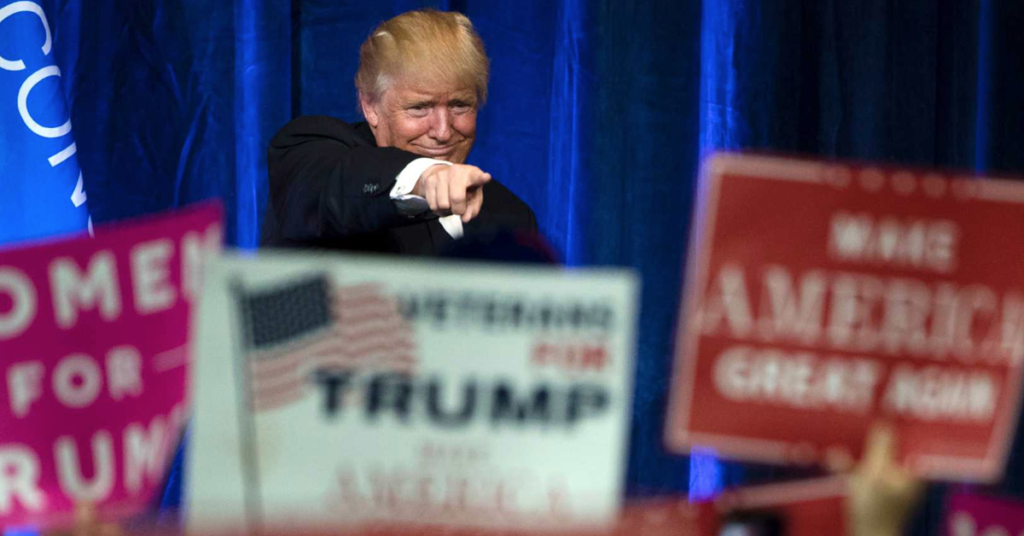
On election night, when Donald Trump claimed victory in her home state of Wisconsin, Shay Chamberlin was so excited she screamed and fell over. Chamberlain believes Trump is her savior, sent by God to save America from ruin. She owns a women’s clothing store in this modest town; her husband runs a construction company. They have two children and barely get by on $44,000 a year, living paycheck to paycheck. In his victory speech, Trump called people like Chamberlain and her family America’s “forgotten men and women” – the blue-collar workers in the manufacturing towns of the Rust Belt and the hollowing coalfields of Appalachia who propelled him to an improbable victory. They felt left behind by progress, laughed at by the elite, and so put their faith in the billionaire businessman with a sharp tongue and short temper who promised to Make America Great Again. When Trump first ran, Chamberlain thought to herself: “That’s the man everybody has been praying for.” And she now feels vindicated by his victory. “This is a movement,” she said. “This isn’t a candidate anymore. This is a movement.” Not all of Trump’s support came from the blue-collar downtrodden. But the Republican’s overwhelming backing among whites with less than a college education is at least partly a reflection of how little the economic recovery since the Great Recession has benefited them. Their job opportunities have dwindled and their incomes have fallen, even as broader measures of the nation’s job market show improvement. But they also turned to him to hold back the tide of social change: same-sex marriage, transgender rights, a society growing more racially diverse. The white working class, long ignored, found an unlikely spokesman in Trump. He promised to build the wall to keep out immigrants. He promised to tear up trade deals that have ushered American factory jobs overseas. He promised to put blue-collar America back to work and restore the country to a time when white workers felt appreciated and fulfilled. “I feel like, not just most, but all Trump supporters are true patriots,” said 59-year-old Ginger Austin, who owns a graphics company in a tiny town in Jones County, one of the poorest places in North Carolina. “They love this country. But they’re taking our country away, and they’re changing it. They’re just changing everything. All our rights are just slowly being dwindled away.” She’s angry at the Republican Party she has supported all her life. She is angry at Barack Obama and the Affordable Care Act. She is angry that America is changing, and worried that her grandchildren are growing up in a world too liberal and too politically correct. The nation awoke Wednesday morning to learn just how starkly divided it has grown: Hillary Clinton won the popular vote by less than 200,000 ballots. But Trump won battleground states that had voted for Obama twice. Thousands of registered Democrats, including many former union workers from the mines and factories, crossed party lines and sided with Trump. For example, in Dunn County, where Shay Chamberlin lives, Obama beat Mitt Romney 53 percent to 46 percent in 2012, and John McCain 57 percent to 42 percent four years earlier. But it flipped to back Donald Trump, 52 percent to 41 percent, over Clinton. Scott Hiltgen, a 66-year-old small business owner in Wisconsin, called Washington a “cesspool” of career politicians, aware of and indifferent to the plight of the American worker. “We are considered flyover country, as you well know, and they don’t care about us,” he said. “And I think it was the silent majority that finally said, ‘Enough’s enough. We want a change. We don’t like the way things are going.’” Middle-aged white men with only high school degrees – the core of Trump’s support – saw their inflation-adjusted incomes plummet 9 percent from 1996 through 2014, according to Sentier Research, a data analytics firm founded by former Census Bureau officials. White male college graduates in the same age bracket, by contrast, saw their incomes jump 23 percent. The Great Recession wiped out millions of middle-income jobs in manufacturing, office administrative work and construction, and those jobs haven’t returned, even as the nation now has 6.5 million more jobs than it did before the recession began. In many parts of the country, they have been replaced with lower-income work in restaurants, hotels, and in home health care. This “hollowing out” of the nation’s economy has left many Americans with high school degrees feeling shut out of the middle class. Jerry Blackburn, a retired county official in rural Virginia, said he feels like people from someplace else took all they could from him and his neighbors and then left them with nothing. “They took our coal out of here and everybody got rich on it. And what did we get?” he asked. “We got black lung. We don’t have good water to drink, we don’t have roads, we don’t have anything except a bunch of broken down old coal miners that’s forgotten. But everybody else got rich on us.” On Wednesday morning, miners streamed into a convenience store on a highway between one struggling, West Virginia coal town and another. From behind the counter, manager Mary Jones recognized something she hadn’t heard in years: hope. They talked about jobs returning to this broken-down county. They talked about a chance at a brighter future. They talked about Donald Trump. “I think we sent a message to Washington that we’re tired of them sitting up there doing nothing to help the working-class people,” said Jones, a native of Wyoming County, where the collapse of the coal industry has left behind a string of tumbledown houses and a quarter of families in poverty. Coal trucks used to barrel by all day and the parking lot stayed full. No trucks come by anymore. The store is for sale. She’s not sure she’ll have a job much longer and is certain she won’t find another. They struggle to make enough money to pay
Effect of voting laws seen, but not enough to sway outcome
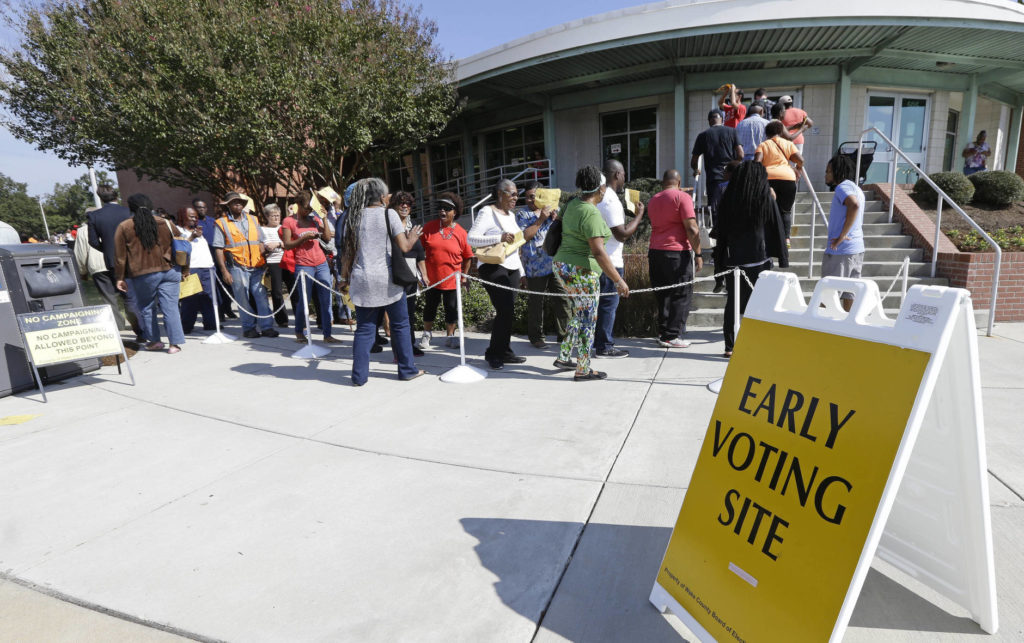
Fourteen states had new voting or registration restrictions in place for the 2016 presidential election, raising concerns that minority voters in particular would have a harder time accessing the ballot box. Voting experts believe the laws had some effect on turnout this year, but said it would be difficult to measure against other factors – such as a lack of enthusiasm for either Donald Trump or Hillary Clinton and the decision of many people simply not to vote. They expressed frustration that some states had made it more difficult for voters to participate, even if there is no evidence the changes influenced the outcome of the presidential election. “There were clearly many people who bore the brunt of new voting restrictions or who were otherwise unable to participate, and that is not acceptable in a democracy,” said Wendy Weiser, head of the democracy program at the Brennan Center for Justice at NYU’s School of Law. She said a few battleground states won by Trump were among the states that had enacted restrictions in recent years, including Florida, Ohio, North Carolina and Wisconsin. In some of the states, the margins between Trump and Clinton were simply too great for voting restrictions to have been a deciding factor. But Weiser said the roughly 27,000-vote difference in Wisconsin was concerning, given the turmoil surrounding the state’s voter ID law. With lower than expected turnout, Trump was the first Republican since Ronald Reagan in 1984 to win the state. It’s been estimated that as many as 300,000 Wisconsin voters did not have the required photo ID. Molly McGrath, with the national group VoteRiders, spent Tuesday fielding dozens of calls from voters who had questions about the law. In one case, she picked up a 99-year-old retired university professor named Fred at his polling place and drove him to a DMV office so he could get his photo ID. He had let his license expire, preferring instead to walk or ride his bike. “How many Freds are there? How many Freds decided not to call?” McGrath said. “There is 100 percent no doubt in my mind that people fell through the cracks and didn’t have their votes counted. And when we see the numbers of how close this election was, we should all be unsettled by that.” With black and Hispanic voters, Trump apparently did as well as Republican Mitt Romney when Romney lost to President Barack Obama in 2012, according to exit polls. Trump appeared to have won more than half of white voters, who made up 70 percent of the electorate. The 2016 election was the first without a key enforcement provision of the Voting Rights Act that had required some states and counties to receive approval before enacting new election laws. The 2013 U.S. Supreme Court ruling setting aside that requirement opened the way for voter ID and other measures that reduced early voting, straight-ticket voting and same-day registration. Those actions were taken primarily by Republican lawmakers, who said they were targeting voter fraud. Even though court decisions have rolled back some of the more far-reaching restrictions, civil rights groups were concerned that confusion over the laws could deter voters. Sandy Fambrough, a deputy poll judge in Denton County, Texas, said she witnessed violations of court-ordered changes to the state’s voter ID law. Texas was forced to soften its voter ID law after a federal appeals court deemed it discriminatory. Under the original law, it was estimated that some 600,000 eligible voters didn’t have an acceptable form of ID. “Who knows how many people didn’t vote because they were given the wrong information?” Fambrough said. In North Carolina, voter ID requirements and early voting reductions were struck down after a federal appeals court said they “target African Americans with almost surgical precision.” Republican officials have said discrimination was not their intent. After some North Carolina counties reduced hours and polling places during the first week of early voting, one researcher found black turnout was down 13 percent compared with the 2012 election. On Tuesday, Trump won the state by about 178,000 votes over Clinton. “Even if those states didn’t have those laws, it’s not at all clear that the outcome would have been any different,” said Rick Hasen, an election law expert and professor at UC Irvine’s School of Law. He said he would not be surprised if more states pass restrictive voting laws in the years to come. “It’s not hard to imagine that this will give a green light to engage in ever more restrictive voting laws,” he said. Republished with permission of the Associated Press.
Will Lochamy: There’s no crying in politics?
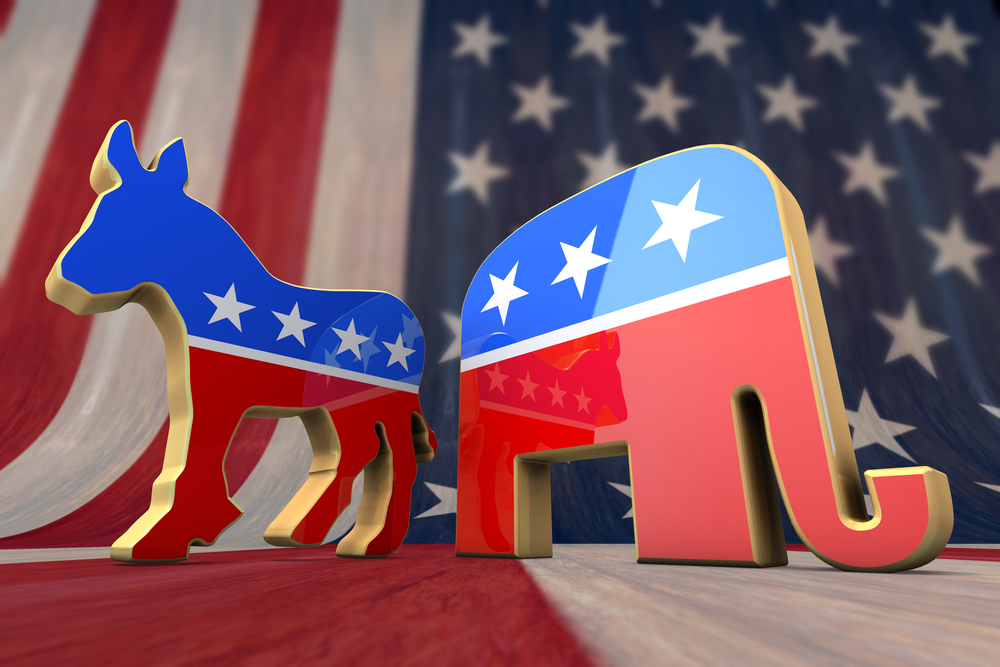
I’d much rather laugh than cry. My brother and I joked about how we regretted taking our grandmother frosties each time we visited her. This joke was told to the other pallbearers as we all strained to carry her to her final resting place. God rest her frosty loving soul. We’ve all had laughs over the past sixteen months. There’s no way around it. Donald Trump’s campaign was a political barrel of monkeys. If you were for him, you could laugh at the jabs he was taking at the seasoned politicians as he called them insulting names and picked them off one by one. If you were against him, his daily speeches that showed his inaccuracies, uninformed strategies, and social missteps were basically a tickle machine that allowed free entry. It was political satire like we’d never seen. The joke started to become less funny to me on the evening of November 8th. It was like a horse had ACTUALLY walked into a bar, except I was the one with the long face. To be honest, this is the worst case of horse-face I can recollect. I’m a glass half-full guy, so I’m going to try my damnedest to see it that way. Here we go… Half-full: Ummm… ok… Oh, I’ve got one! Politicians are the worst. Beyond small town city councilors, you don’t get very far without serving special interests. Think of the corruption it takes to make it all the way to the top! Trump is the furthest thing from a seasoned politician! But… Having never served in public office or the military leaves him as qualified as… well, as all of us other completely unqualified folks. Last Saturday, my friends and I came up with a better plan to fix this health care mess than Trump has, while simultaneously yelling at a replay official. Granted, Trump hasn’t actually given a plan. We just know it’s going to be the best, whatever it is. Half-full: For real, the Affordable Care Act has been anything but affordable for me. I’m now paying ridiculously high premiums and getting a fraction of the benefits I previously had. Small business owners I know tell me it’s been borderline crippling. Trump says he’s doing away with it! But… I believe that solid healthcare is something that EVERY American deserves and there are a lot of people less fortunate than me that have benefitted from it. While I think changes need to be made, I’d like to hear an actual plan. I haven’t from Trump. Half-full: Trump said in 2015 that he preferred “a fair tax, a flat tax or certainly a simplified code.” That’s what I think too! But… He has since moved away from that language and now uses broad, unspecific, and usually contradictory statements. No reason to spill the beans too much on taxes… right, Donald? Half-full: There’s no way he’s as blatantly racist and sexist as he acted during the first seventy years of his life!? He surely has the ability to tone it down and act rational while holding the most powerful job in the world. But… That’s what we thought he’d do after the primaries. It was never Trump’s bigoted statements that really worried me. It was my fellow citizens that cheered in support. I was able to halfway laugh off the small minority of people acting out on his behalf. After all, the Klan is, has, and always will be a joke. It was when I saw extended family members and enough voters to take the electoral college supporting him that I stopped laughing. Half-full: At least Hillary didn’t win. But… Here’s the thing. I’ve been a Hillary antagonist since my grandparents took me to an anti-universal healthcare rally as a child. I even held a sign saying, “Government Run HealthCare Makes Me Sick!” For one reason or another, she always rubbed me the wrong way. With Trump as the Republican nominee, I had to come to grips with the possibility of voting for her. I would much rather abstain than vote for the lesser of two evils, so I felt it only fair to do some research. I found a lot of the things you’d expect. She’s tied to plenty of special interest groups, the email stuff, and so forth. However, I didn’t find any of her actions to be worse or more self serving than other political heroes from BOTH parties. From my research (most of which was done to prove Facebook friends wrong), I found that she hadn’t seemed to have gotten a fair shake. There were a number of things being said about her every day that simply weren’t true. These were things that I’d known as “truths” for years. So the bartender says, “why the long face?” “Because I’m a horse… I have a long face,” said the horse. Let’s hope we’ll all look back and laugh, rather than cry. Writer’s note: This is the tip of the iceberg for me. There is more I could say about both candidates. Much more. However, this is the synopsis of my novel. Will Lochamy is co-host of the radio show, “Oh Brother Radio” on Birmingham Mountain Radio (107.3FM).
GOP maintains influence over most legislatures, state policy
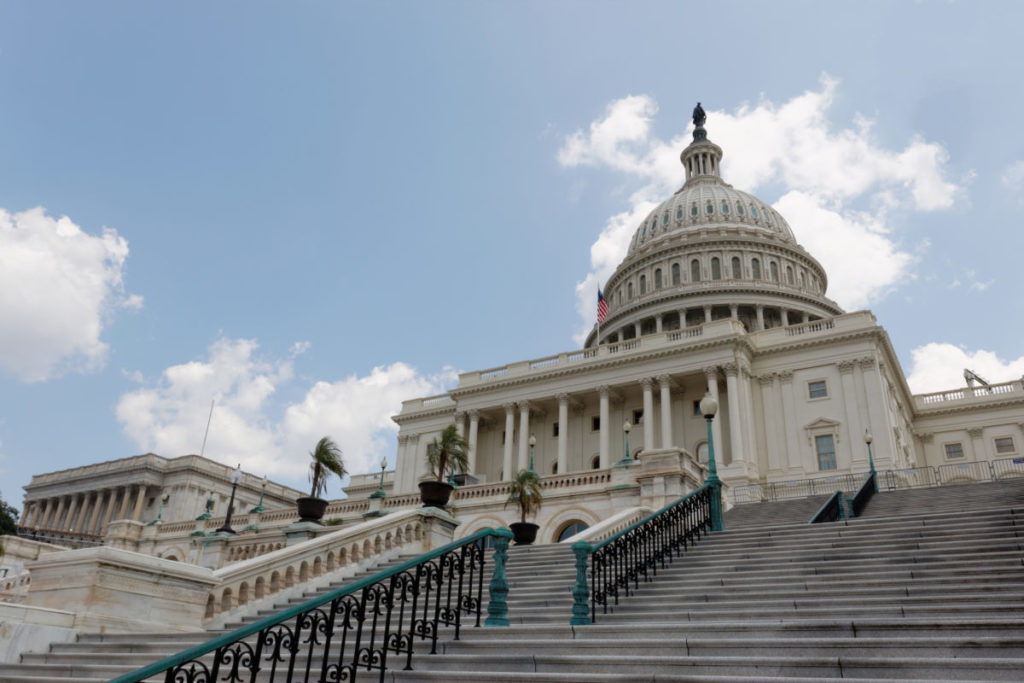
Buoyed by Donald Trump‘s surprising strength, the Republicans maintained their control over a large majority of state legislatures across the country, setting up the GOP to enact conservative policies and potentially cement its political power for years to come. Democrats had seen 2016 as a chance to chip away at the large advantage in statehouses the Republicans have enjoyed since 2010. But in state after state, they fell short. With Tuesday’s results, the Republicans will control at least as many legislative chambers as they do now – 68 out of 99, an all-time high for the GOP. And they will have full control of 33 legislatures, up from 31. (That includes Nebraska, which has a technically nonpartisan, single-chamber legislature.) The Democrats will be in full command in 13 states. Republicans scored major victories by taking control of the Iowa and Minnesota Senates and the Kentucky House. They also held on to their majorities in chambers in several states that had been targeted by the Democrats, and apparently gained a tie in the previously Democratic-controlled Connecticut Senate. The GOP wave also extended to governor’s races, where Republicans were expanding their sizable majority of seats. The election wasn’t a total loss for Democrats. They picked up both chambers in Nevada and the House in New Mexico. They also took a one-seat advantage in the Washington Senate, but they still won’t have operating control, because one Democrat caucuses with the Republicans. The results give Republicans a better chance of directing the redrawing of congressional and legislative districts that the states will undertake after the 2020 census. That, in turn, could help the GOP maintain its grip on power for years. Some Democrats said they think the party could bounce back and gain the upper hand during redistricting. “If a Trump presidency at all resemble the Trump candidacy, Democrats nationwide will be buoyed by Republican backlash in the next two election cycles,” Carolyn Fiddler, a spokeswoman for the Democratic Legislative Campaign Committee, said in an email. More immediately, the Republicans’ successes on Tuesday could have implications for joint state-federal programs such as Medicaid, infrastructure funding and energy policy, all of which could change dramatically under a Trump administration. “It’s an obvious and unavoidable trend at this point,” said Matt Walter, president of the Republican State Leadership Committee, which ran TV ads on behalf of legislative candidates in Kentucky and other competitive states. He said he expects more state control of health insurance if President Barack Obama‘s Affordable Health Care Act is scaled back or repealed. Anti-union right-to-work laws also could expand in the states. Stephen Voss, a University of Kentucky political scientist, said he expects rapid change in policies in his state with Republicans now firmly in control, including perhaps programs that use taxpayer money to send students to private schools. With the Kentucky win, Republicans now control every state legislative chamber in the South. One Democrat ousted was Greg Stumbo, the House speaker and former state attorney general who was a major force in Kentucky politics for decades. He represents a rural district where Hillary Clinton was especially unpopular. Republicans appeared to hold onto many legislative bodies that Democrats went after hard, including the Senate in West Virginia and the House in Michigan. In Iowa, the Republicans stunned the Democrats to easily take control of the Senate by picking up at least six seats in the 50-seat chamber. They needed to flip just three districts to win the chamber. The election swept out Senate Majority Leader Mike Gronstal, a powerful Democrat who had been a fixture in state government for three decades. Democrats had credited Gronstal in recent years with blocking GOP efforts to roll back gay marriage and abortion rights, enact restrictions on voting and limit the clout of public employee unions. They were devastated by his defeat. “That’s very bad for our state,” said Democratic activist Julie Stauch, who fought back tears Wednesday. She called Gronstal a party leader who would “wield power for good. And that’s lost.” Republicans now control the Iowa governor’s office and both houses of the General Assembly for the first time since the late 1990s. Republished with permission of the Associated Press.
Analysis: Donald Trump’s victory a reversal of fortune for Barack Obama
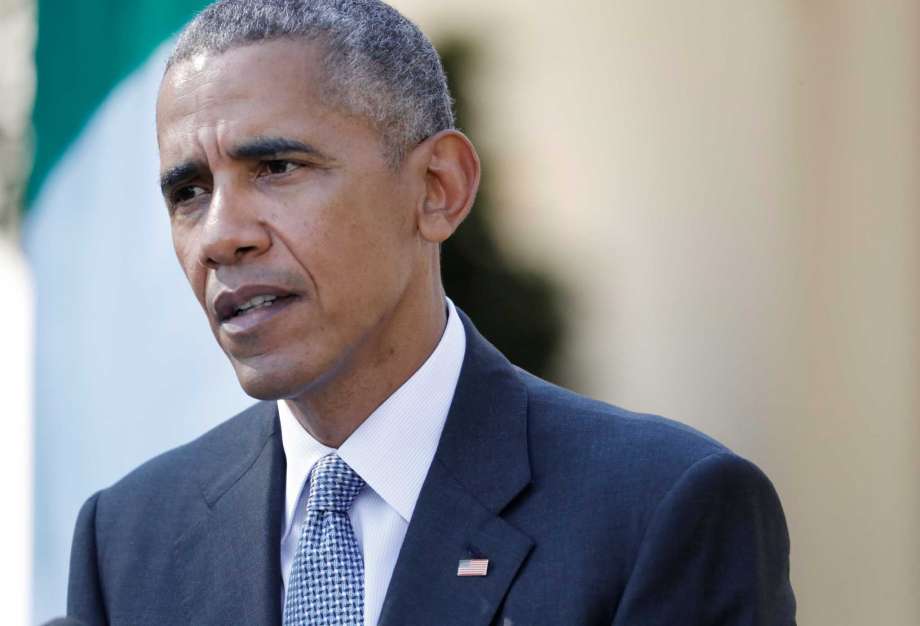
He warned that Donald Trump was dangerous, a nuclear hair-trigger, proud to get away with sexual assault. And now it falls to President Barack Obama to reassure America that it can survive four years of President Trump. The impulsive billionaire’s improbable victory sets in motion a remarkable reversal of fortune for Obama. He had planned to coast through his final months while ushering in a simpatico Hillary Clinton, but will instead spend his time presiding over a country that is divided, anxious and has little idea what’s coming next. Riding approval ratings higher than at any time since he was first elected, Obama was poised to become one of the country’s most consequential leaders – a modern-day Franklin Delano Roosevelt, with a wealth of domestic and foreign accomplishments that most presidents would envy. He still may – but not if Trump succeeds in carrying out what he’s said he plans to do. Trump rooted his campaign in a pledge to systematically roll back Obama’s achievements, on health care, immigration, climate change, trade, international relations and more, and soon will have the tools to do it: the first single-party control of both Congress and the White House since Obama’s first two years in office. Mindful that his legacy could be pulled out from under him, Obama said last week that a Trump victory would mean “it all goes out the window.” It was unsurprising, then, that the mood at the White House was despondent the day after Trump’s triumph. White House aides who had gathered with friends Tuesday to witness the election of the first female president instead found themselves asking the next morning whether the last eight years would end up a fool’s errand. There were tears – lots of them – on the faces of a few hundred Obama staffers who gathered in the Rose Garden as Obama delivered his post-election statement to reporters. Looking dazed and queasy, they stood on the grass and listened as Obama assured them their efforts hadn’t been for naught. “That remarkable work has left the next president with a stronger, better country than the one that existed eight years ago,” Obama said, standing with Vice President Joe Biden. “Sometimes you lose an argument. Sometimes you lose an election. The path that this country has taken has never been a straight line.” If Obama was as depressed about the election’s outcome as most suspected, he didn’t show it. White House officials said he felt a responsibility to calm the nation after a bruising, divisive campaign in which the victorious candidate offended wide swaths of the country. Obama’s aides said the president took a measure of solace that many of Trump’s policy prescriptions have been vague and open-ended, perhaps allowing him more wiggle-room to preserve some of Obama’s achievements than other Republicans like Texas Sen. Ted Cruz might have had. And they held out hope that the socially moderate Trump, who once supported abortion rights and has proposed paid family leave programs, might end up having more in common with Obama than is immediately apparent. Yet by reducing Clinton’s loss to a version of “you win some, you lose some,” Obama glossed over the dark vision of Trump’s America he’d painted for voters as the campaign neared the finish. Casting Trump as an existential threat in ways other GOP nominees were not, Obama told rally-goers that the world was “teetering” and that “the fate of the Republic rests on your shoulders.” Less than 12 hours after the race was called for Trump, the White House had softened its tone. The administration noted that as president-elect, Trump is entitled to the same daily intelligence briefing as Obama receives – one that includes information on U.S. covert operations, information gleaned about world leaders and other data gathered by America’s 17 intelligence agencies. Where Obama had once deemed Trump unfit to get anywhere near the nuclear codes, the White House instead referred to policy differences not wholly unlike the ones that previous consecutive presidents have had, with no disastrous consequences for the nation. “By relying on our institutions and democratic traditions, demonstrating a faithful commitment to the will of the American people, our democracy hasn’t just survived, it has thrived,” White House spokesman Josh Earnest said. Republished with permission of the Associated Press.
Martha Roby faced tough re-election after criticizing Donald Trump, but has no regrets

U.S. Rep. Martha Roby was elected to a fourth term Tuesday night but may have paid a political price for being one of the few Republicans in the Deep South state to speak out against Donald Trump. Roby was forced into a closer than expected race after 29,000 write-in votes drained support from the GOP incumbent in the wake of her criticisms about Trump. Roby was victorious over her challenger by about 23,000 votes, a comfortable win. However, it was far short of the 2-1 victory margins enjoyed by most other GOP incumbents on election night in Alabama. Unofficial returns compiled by the Alabama secretary of state show that at least 29,000 write-in votes were cast in the conservative 2nd Congressional District that stretches from Montgomery through rural southeast Alabama. Roby said last month that she could not vote for Trump after recordings surfaced of Trump in 2005 making lewd comments about being about able to grab women because he is famous. “Donald Trump’s behavior makes him unacceptable as a candidate for president, and I won’t vote for him,” Roby said in October. She said Trump should step aside and let a responsible Republican lead the ticket. “That was the final straw,” William Silaghi, a former air traffic controller and Air Force veteran, said of Roby. Silaghi said he thought Trump’s 11-year-old comments were a lesser concern that Hillary Clinton’s use of a private email server as secretary of state. He urged people to write in Becky Gerritson, a tea party candidate who lost to Roby in the primary. “I hope it sends a message to Mrs. Roby that she better start listening to her constituents,” he said Wednesday. Roby, in an interview Wednesday, said she did not regret her decision but respected those who differed in opinion. “I understand that there were people who disagreed with that, and they had the opportunity yesterday to voice that disagreement at the polls,” Roby said. “Whether you voted for me or not, I’m still going to fight for you. I’m still going to listen to you and advocate on your behalf and be there to help when you have a problem,” she said. “I congratulate Mr. Trump, and I’m not only forward to working with him — I’m eager to get to work,” she said. Roby’s comments about Trump came without hope of political gain in a state that Trump was expected to easily carry. Gerritson said she did not start or push the write-in effort on her behalf. Doing so would put her in jeopardy of violating GOP loyalty rules and could make it difficult to run again under the Republican label. Gerritson — who has now twice lost to Roby — said she is uncertain if she will run again. “I’ve not the closed the door on it,” Gerritson said. Republished with permission of the Associated Press.


